Daniel Gruss receives Highly Endowed ERC Starting Grant
Daniel Gruss receives the prestigious EU funding award for research into energy-efficient IT security from the European Research Council in 2022. The research of computer scientist and cybersecurity expert Daniel Gruss and also of experimental physicist and START Prize winner Marcus Ossiander will receive funding totalling 3.3 million euros over the next five years, the European Research Council announced today.
Read more about their remarkable achievement by clicking on the link on the right.

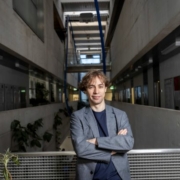
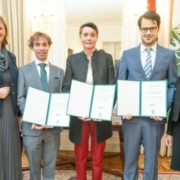

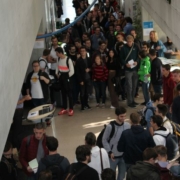
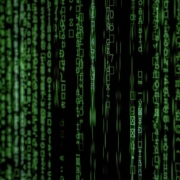

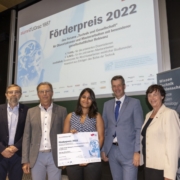 alumniTUGraz 1887 / Lunghammer
alumniTUGraz 1887 / Lunghammer 
